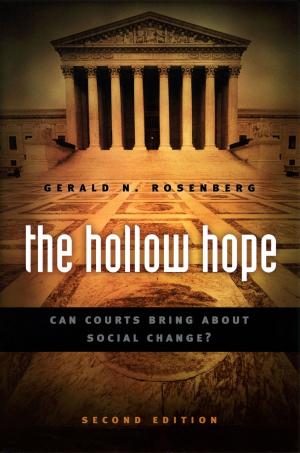Ku Klux Kulture
America and the Klan in the 1920s
Nonfiction, Social & Cultural Studies, Social Science, Discrimination & Race Relations, History, Americas, United States, 20th Century| Author: | Felix Harcourt | ISBN: | 9780226376295 |
| Publisher: | University of Chicago Press | Publication: | November 22, 2017 |
| Imprint: | University of Chicago Press | Language: | English |
| Author: | Felix Harcourt |
| ISBN: | 9780226376295 |
| Publisher: | University of Chicago Press |
| Publication: | November 22, 2017 |
| Imprint: | University of Chicago Press |
| Language: | English |
In popular understanding, the Ku Klux Klan is a hateful white supremacist organization. In Ku Klux Kulture, Felix Harcourt argues that in the 1920s the self-proclaimed Invisible Empire had an even wider significance as a cultural movement.
Ku Klux Kulture reveals the extent to which the KKK participated in and penetrated popular American culture, reaching far beyond its paying membership to become part of modern American society. The Klan owned radio stations, newspapers, and sports teams, and its members created popular films, pulp novels, music, and more. Harcourt shows how the Klan’s racist and nativist ideology became subsumed in sunnier popular portrayals of heroic vigilantism. In the process he challenges prevailing depictions of the 1920s, which may be best understood not as the Jazz Age or the Age of Prohibition, but as the Age of the Klan. Ku Klux Kulture gives us an unsettling glimpse into the past, arguing that the Klan did not die so much as melt into America’s prevailing culture.
In popular understanding, the Ku Klux Klan is a hateful white supremacist organization. In Ku Klux Kulture, Felix Harcourt argues that in the 1920s the self-proclaimed Invisible Empire had an even wider significance as a cultural movement.
Ku Klux Kulture reveals the extent to which the KKK participated in and penetrated popular American culture, reaching far beyond its paying membership to become part of modern American society. The Klan owned radio stations, newspapers, and sports teams, and its members created popular films, pulp novels, music, and more. Harcourt shows how the Klan’s racist and nativist ideology became subsumed in sunnier popular portrayals of heroic vigilantism. In the process he challenges prevailing depictions of the 1920s, which may be best understood not as the Jazz Age or the Age of Prohibition, but as the Age of the Klan. Ku Klux Kulture gives us an unsettling glimpse into the past, arguing that the Klan did not die so much as melt into America’s prevailing culture.















